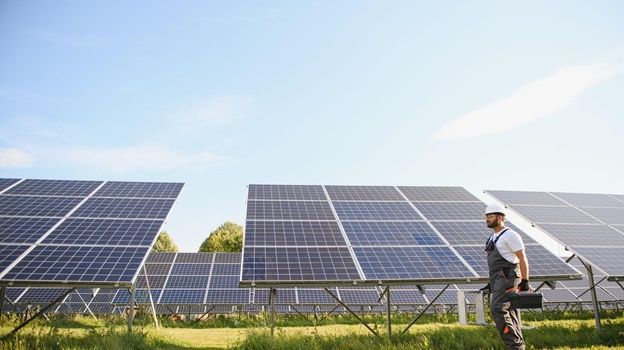Blog post -
The Modern Era's Economic Worth of Solar Panels
Nowadays, with the growth of technology and growing awareness of environmental issues, solar electricity offers several benefits. Concerns about climate change and the growing energy needs of the world's population have increased the need for sustainable power solutions. Though formerly considered an unusual technology, solar panels have evolved into an essential part of today's homes and businesses energy infrastructure, offering them an affordable, clean, and efficient source of electricity. Their significance goes much beyond the money saved; they represent a shift toward a future in which everyone can become energy independent and responsible for the environment. Considering solar panel installation now? Visit Our Site for an affordable and sustainable solution for you.
The Advantages of Solar Power for Homes
A major advantage of solar energy for homes is a significant decrease in electricity costs. Costs steadily go down when residences equipped with solar panels can provide enough electricity for daily needs. Using solar panels is one method of producing electricity. Solar panels generate electricity by utilising solar light. Furthermore, a lot of locations offer financial advantages like tax breaks and rebates, which can drastically cut installation costs up front and speed up return on investment. Consequently, the homeowners will experience increased financial stability and be able to avoid unanticipated increases in their electricity costs.
Using solar energy has benefits for environmental sustainability that go beyond economics. By reducing their dependency on fossil fuels, homeowners that install solar technology lessen their carbon footprint and directly contribute to international efforts to combat climate change. Green certifications are becoming more and more valuable in many areas; in real estate markets, homes with sustainable features typically appreciate more because purchasers who care about the environment look for residences that align with their ideals. In this sense, making an investment in solar panels is an investment in a sustainable legacy that will increase property value and help ensure a cleaner planet for coming generations, rather than merely financial gain.
Lowering Power Bills and Long-Term Cost Savings
One of the best things about solar panels is that they can save a lot of money. Solar panels generate electricity from solar radiation, reducing the amount of energy a family must obtain from regular utility sources. This reduces monthly power bills, particularly in areas with high energy costs or abundant sunshine.
These savings pile up over time. Many homeowners find that their lower energy expenses allow them to recoup their installation costs in a few years, even after paying the initial cost. Once the panels are paid for, the electricity they provide is typically free. Depending on the size of the system and the local energy prices, homeowners can save thousands of dollars over the course of a solar installation, which typically lasts 25 to 30 years.
In certain circumstances, solar panels may be able to supply more electricity than a house needs. Homeowners that sell their excess energy back to the grid through net metering systems may receive credits or extra cash. As installation costs are lowered and return on investment is increased, solar panels become a more affordable choice over time.
Protection Against Energy Price Changes and Power Outages
Among the many significant advantages of solar panels is their adaptability to unpredictable power outages and fluctuating energy prices. A number of factors, such as shifting market demand, geopolitical upheaval, and the rising cost of fossil fuels, can affect traditional energy costs.
If built with battery storage systems, solar-powered homes may also be able to store excess energy generated on sunny days. This energy can be used to provide a reliable source of electricity at night or during blackouts. Homes equipped with solar panels and storage systems, as opposed to traditional grid-tied systems, offer energy stability and independence even during blackouts. This resilience offers comfort and continuous power during catastrophes, making it particularly useful in regions vulnerable to natural disasters or infrastructure failures.
In addition to being an environmentally friendly energy source, solar panels also offer long-term cost savings, energy independence, and stability against the unpredictable nature of conventional power networks.
By using solar energy to create their own electricity, homeowners can significantly reduce their electricity bills and safeguard themselves against changes in energy prices. Even more security and comfort is added when solar power and battery storage are combined to create a reliable power source during a grid outage. The procurement of solar panels needs to stop in order to ensure a sustainable and independent future. A prudent financial decision considering the current climate of escalating energy prices and disruptions.
